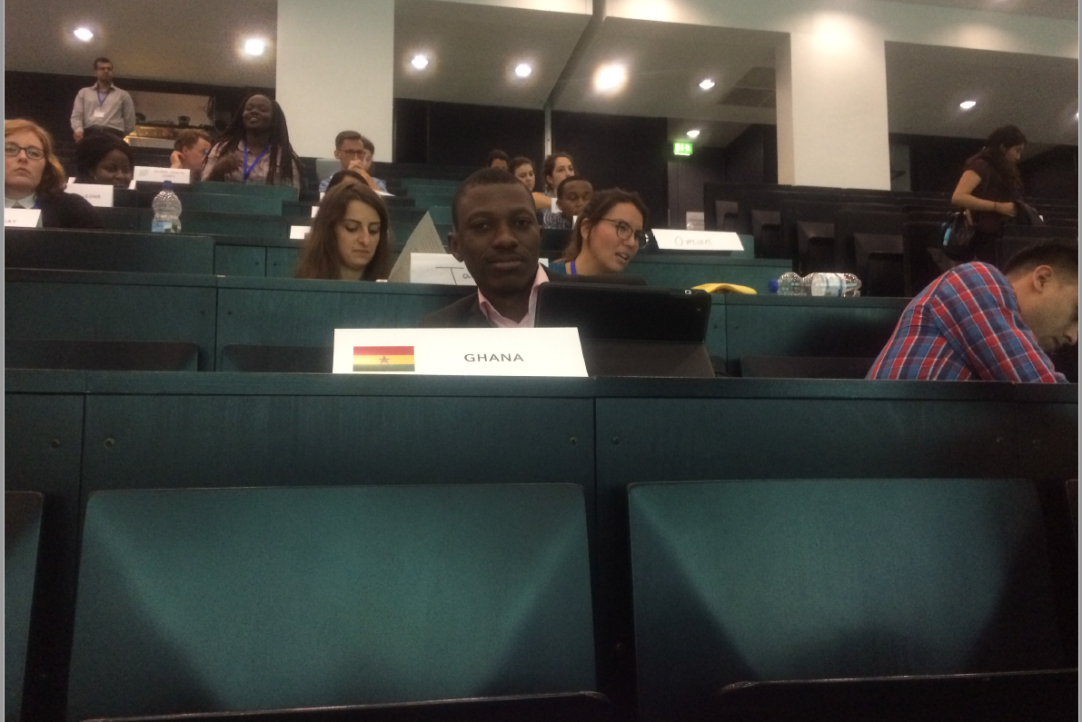Young leaders for health conference 2017 (Berlin, Germany)
The Young Leaders for Health (YLH) is an interdisciplinary platform with the aim to stimulate exchange of knowledge and opportunity as well as network with people across the globe involved in Global Health. With support from the World Health Summit and Charit├® University of Medicine, the YLH Conference 2017 was organized at the Charit├® University Campus in Berlin, Germany from 17th-20th August 2017. Our student, Kofi Aduo-Adjei, shares┬Āhis experiences of participating this conference which was held in Berlin

The conference was purposed on stimulating policy ideas on realization of the Sustainable Development Goals (SDGŌĆÖs) with a special focus on good health and well-being for all. It combined a comprehensive workshop and lecture programme with simulation of the World Health Assembly (WHA).
The conference brought together 140 delegates representing over 100 countries and other international media outlets across the world, (CNN, BBC, Fox news, etc) as well as renowned humanitarian organizations such as SAVE THE CHILDREN, PATHFINDER International, Health Action International, Bill and Melinda Gates Foundation and OXAFAM International.┬Ā
Deliberations and simulation of policy ideas on commercial determinants of Non-Communicable Diseases begun after an opening remark by Jeffrey Sachs (the Harvard Scholar, who is a world-renowned professor of economics, Special Advisor to United Nations Secretary-General Ant├│nio Guterres on the Sustainable Development Goals and a bestselling author). He indicated the need to narrow our discussions on the SDG3 in solving the health challenges of our countries and argued that the debate on these policies should be driven by empirical evidence. As a delegate representing my home country Ghana, I presented a policy brief titled ŌĆ£Public-Private Partnership Approach to Non-Communicable Disease (NCDs) prevention in GhanaŌĆØ arguing the need to have an integrated approach to win the fight against NCDs in Ghana. This theoretical and policy assumptions were conceptualized in a framework known as ŌĆ£NCDs Prevention Partnership FrameworkŌĆØ, detailing multi-actors institutional guide to NCDs prevention in Ghana. The framework was seen by the Africa, Europe and MENA delegates block as fundamental in NCDs management and prevention. It was accepted as part of the working resolution by the Assembly and later passed as a working paper after an overwhelming affirmative vote by delegates at the Assembly.┬Ā
┬Ā
As part of the stimulation, delegates were engaged in designing thinking labs as well as workshop from distinguished professionals and academics from World Health Organization(WHO), Hertie school of Governance, Global Humanitarian Medicine and Graduate Institute of International and Development Studies in Geneva.┬ĀAs delegates, we visited refugee camps in Berlin as part of the social porgramme to familiarize ourselves with the health conditions and social connectedness of refugees in the camp. It was a fulfilling moment, interacting with them about their health challenges and finding solutions to these problems at both local and global arena.┬ĀPersonally, participating in this international conference was inspiring as I exchanged both policy and practice ideas with colleagues and world-acclaimed professionals from different part of the world. With this experience, I had an in-depth understanding on issues and concepts in courses such as social policy, demography as well as health policy and public management at Higher School of Economics. I am grateful to Professor Vladimir Kozlov for his support and motivation toward my participation in in this memorable conference. ŌĆ£Global Health! Our ConcernŌĆØ
by Kofi Aduo-Adjei, student of the programm "Population and Development"
┬Ā

